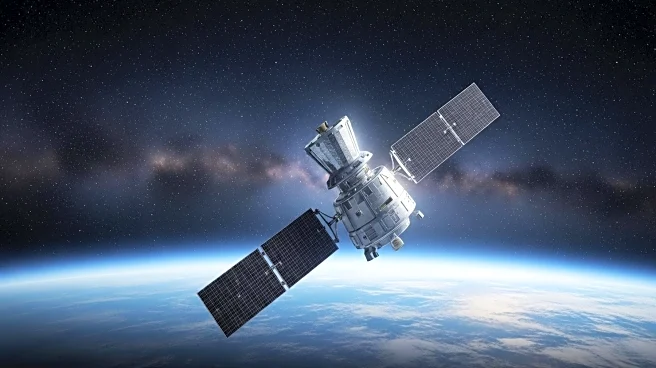What's Happening?
Federal Communications Commission (FCC) Chairman Brendan Carr announced new regulatory reforms aimed at accelerating the U.S. space industry. The FCC plans to streamline the satellite launch licensing process and enhance the use of satellite spectrum. These changes are intended to reduce approval times and create clear standards for applicants, thereby fostering innovation and competitiveness in the U.S. space sector. The announcement was made during the opening of Apex's Factory One, a facility designed to mass-produce satellite buses. The reforms are part of a broader effort to align regulatory processes with the rapid pace of technological development in the space industry.
Why It's Important?
The FCC's reforms are crucial for maintaining the U.S.'s competitive edge in the global space race. By reducing regulatory delays, the U.S. can better support its space entrepreneurs and companies, allowing them to innovate and capture market share more effectively. This is particularly important as other countries, like China and European nations, streamline their own space regulations to compete in the burgeoning space economy. The reforms also aim to prevent U.S. companies from falling behind due to outdated regulatory frameworks, ensuring that American technology and capital can be leveraged to their fullest potential.
What's Next?
The FCC's initiatives are expected to lead to faster satellite launches and more efficient use of satellite spectrum. As these reforms take effect, U.S. companies may experience reduced regulatory burdens, enabling them to focus on technological advancements and market expansion. The success of these reforms could serve as a model for other federal agencies involved in space regulation, potentially leading to a more cohesive and supportive regulatory environment for the U.S. space industry. The ongoing developments will be closely monitored by industry stakeholders and policymakers to assess their impact on the U.S.'s position in the global space market.









